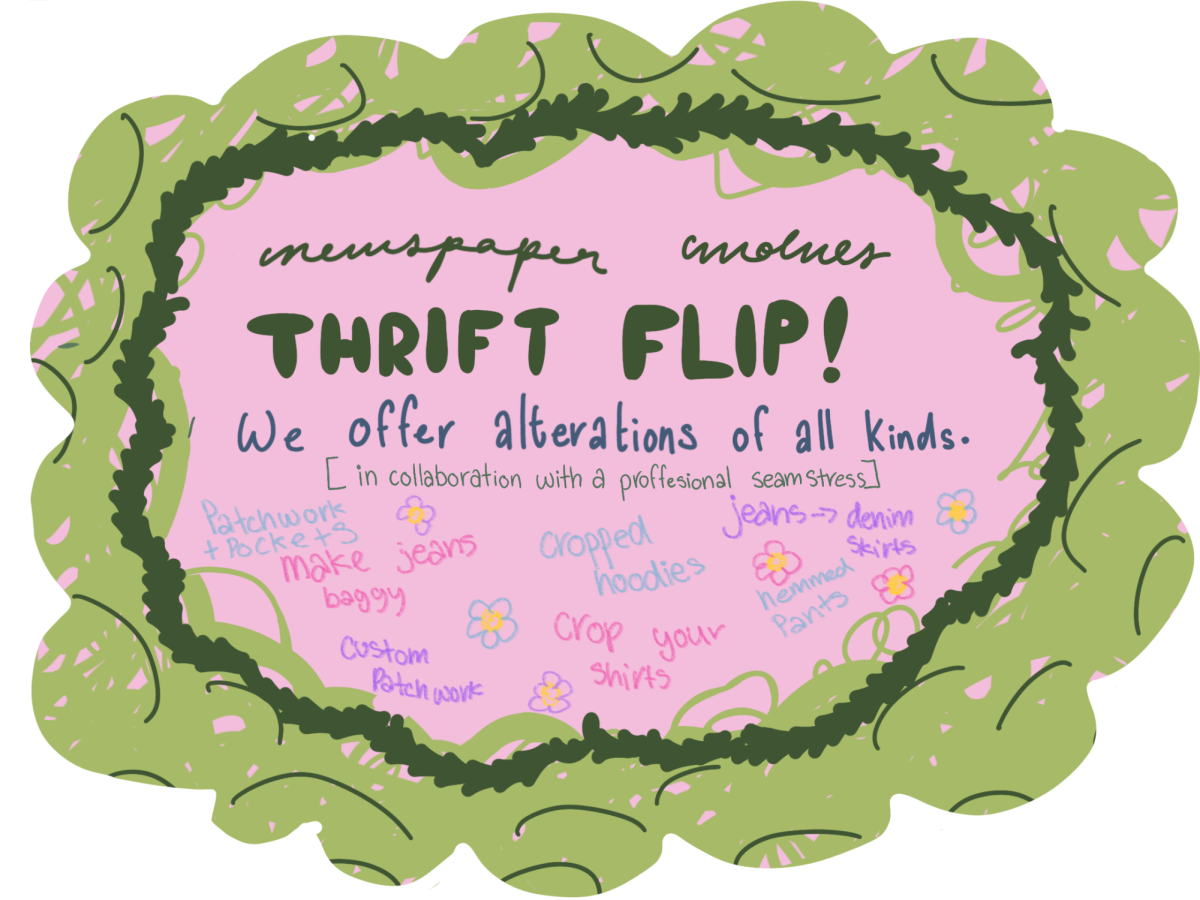In some implicit continued revolt against the rampant materialism of previous years, many still see thrifting in the Portland area as their primary source of clothing. Because of its untraditional structure, with no single company owning the market and products existing everywhere for everyone to buy, the rising gig economy has co-opted the activity as a lucrative side job. Independent “re-sellers” now fill the demand, facilitating exchange through online sales, pop-up stores and popular conventions such as “thrift-con.”
Tualatin student Nate McDougal is perhaps the greatest example of this, raking in thousands of dollars through his side reselling job. I spent a day with McDougal, documenting the thriving resale market and learning the ins and outs of the business.
Our day began around 7 a.m., when a thrice-weekly trip to the Goodwill Bins – ground zero for re-sellers – began. We drove to a blend of Title Fight, assorted Grisdela artists and a lot of terrible shoegaze – not everyone can be Kevin Shields – all while learning from McDougal’s experience.
You’ve really carved out a niche for yourself in this super specific field, so what is it that you actually do?
“I’m kind of just a middleman for all this; I go to the Bins, sort out all the good from the bad and then post it on my website, Depop and everything else.”
You used to sell individual items, but now I’ve been seeing you getting into wholesale?
“Yeah, so, since everyone’s a re-seller now, I’m able to stop selling directly to people online, and instead, I’ve started selling to other re-sellers who sell to individuals.”
So, a middle man for middle men?
“Yeah, pretty much. I’ve got enough product now to where it makes sense.”
On arrival, I could sense McDougal was a veteran of the job. A whole system was worked out, and immediately McDougal expertly picked what was and wasn’t worthy of his wholesale purchase. Identifying types of leather, patterns of stitching and production dates, McDougal figured the rough prices of approximately $64 worth of clothing that he was confident he could flip for more.
The environment was clearly not one of a fun hobby; instead, the energy seemed serious and tense. People came up to McDougal, all on a first-name basis, squabbling for trades and prices.
According to McDougal, this is the community.
“People make their lives on this,” he explained. It’s a diverse demographic with, “old heads who own thrift stores, teen re-sellers on Depop, people with more than $300,000 in the bank and illegal immigrants,” all taking advantage – for one reason or another – of the highly profitable, usually non-taxed income, that comes alongside the reselling job.
On the way back, I asked about the rising trend, if he ever thought things would calm down and where he saw the future of the whole setup.
“Honestly, it’s only growing,” he said. “People keep buying this stuff. There are conventions and weekend sales, booths and pop-up events everywhere. I don’t think it’s going to stop. I only see it getting more popular, and I bet I’ll be doing this for a bit.”
On that note, we drove back to his house; the clothes in the back were ready to be washed, folded, sold in bulk and eventually bought at a mark-up by some unsuspecting 16 year old, unaware of the thriving community behind their purchase.
Categories:
Surge in thrifting trend continues as resellers try to keep up
Liam Frith, Entertainment Editor
March 30, 2024
0
More to Discover
About the Contributor

Liam Frith, Entertainment Editor
Hi, my name is Liam and I’m a junior. This is my first year on staff. I joined The Wolf because I enjoy writing and would love to contribute to our school paper. In my free time I like to skateboard, read, and listen to music.

